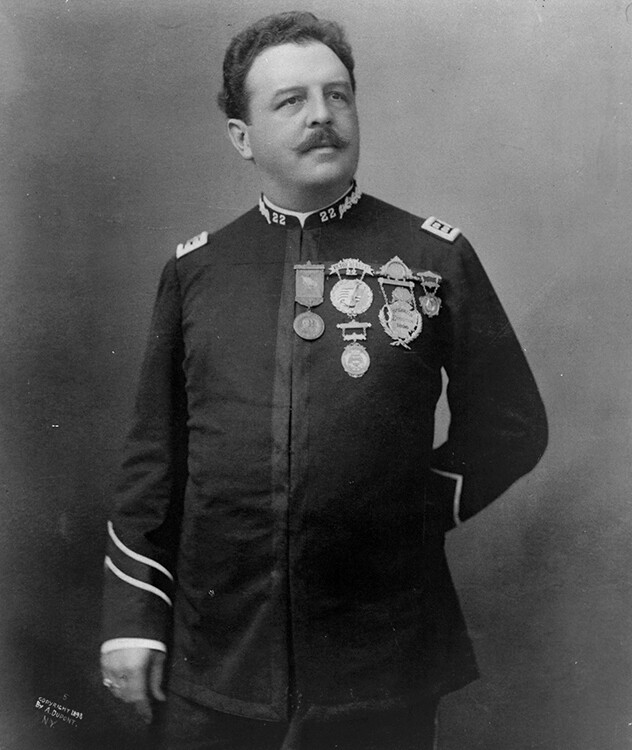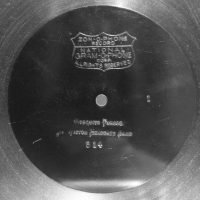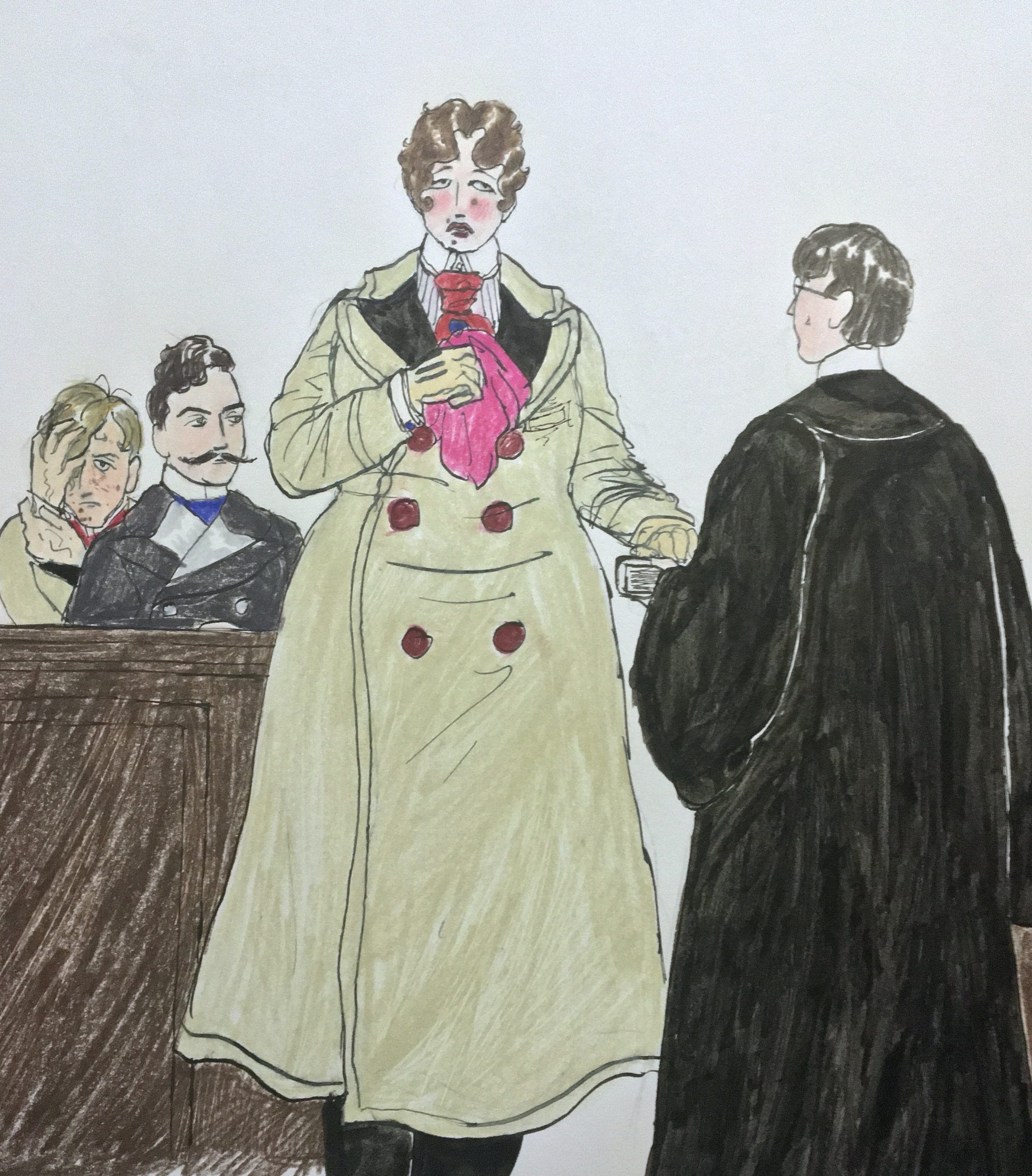
In 1904, the famous composer Victor Herbert sued the Universal talking machine company (better known as Zon-O-Phone) for illegal use of his name. The folks at Universal weren’t strangers to such shenanigans as this, but this suit was a little different from their past courtly bouts. There has been a previous article on this topic featured in this column, but in the last month there has been more uncovered through reading the actual court transcription. These 120 pages can give us a unique look into one of the most corrupt phonograph companies of the acoustic era. Everything from the way the technology worked to the morality of ragtime was discussed in this fascinating suit.
Unsurprisingly, the music director of Universal, Fred Hager, made a royal ass of himself at this hearing. He spoke relatively little, but most of the obvious blame was on him, as they all knew it was him who first thought it a good idea to use Herbert’s name on their labels. The claims by the Zon-O-phone management were that a few members of the original Victor Herbert band got especial permission from Herbert to use his name on their label.
Hager spoke with the utmost pomp in his wording, begging the spectators and jurors that his tuba player, Anton Schliebusch had gotten permission directly from Mr. Herbert himself to make these records. This was the core of his claim:

My connection with the recording department of the defendant company has always been such as to require my presence and attention there whenever records were being made from bands or orchestras, or any musical instruments, and I know that no records made by the defendant company have been marked with the name “Victor Herbert” or “Made by Victor Herbert’s Band” except those which have been made by the band of which Mr. Schliebusch is manager, known as “Victor Herbert’s Band” . . .
Also unsurprisingly he assured the quality of the records he made, ending his opening statement thus:
I generally heard all the records made by the said band reproduced after they were made, and know that they were all of a high grade and of superior quality and tone, and that none were made by the defendant company under the name “Victor Herbert’s Band” which were not of superior quality and tone.
Schliebusch was put in a difficult position, as his former employer (Herbert) certainly had more clout in this matter. While he surely would have liked to side with Herbert, his then master Hager had his will. He stated:
I knew Victor Herbert very intimately, and saw a great deal of him before he went to Pittsburgh, both in the Orchestra and at his home. Shortly before he left for Pittsburgh I secured permission from Victor Herbert personally to use his name in connection with a band which I was then organizing for the purpose of playing selections for making records for talking machine use.
While all of this is true, he would have done this in 1898 when Herbert made a short run of records for Berliner. This was not mentioned of course.
As you could imagine, Herbert was very frustrated about all of this, and some of his anger comes through in his language. One thing that came as a surprise while reading this was that he was particularly unhappy with Hager’s decision to record ragtime numbers under his name. He made this very clear in his second statement:
The defendant in its circulars, a copy of which is attached to the complaint, advertises the fact that “Victor Herbert’s Band” played the following selections: “A Bundle of Mischief,” “An Ethiopian Mardi Gras,” “Before the Mast,” “Carousel Galop,” “Coon, Coon, Coon,” “Dancing with ma Baby,” “Hunkey Dory (Cake walk),” “In Sunny Africa,” “Lobsters Promenade,” “Mosquito Parade,” “Policy Sam,” “Possum Hall Rag,” “Smoky Mokes,” “When Reuben comes to Town,” compositions of the class known as “ragtime music and “coon songs” and of such a character that no high class orchestra would play under any circumstances and which tend to hold me up to contempt and ridicule.
While Herbert himself did not write ragtime, he did write many well syncopated pieces, one of them being his 1901 dance number “Pan-Americana.” This was not the only time the morality and legitimacy of ragtime was discussed in the trial, as later on Schliebusch and Hager came back with generally wise comments on the nature of the music they played on the records. Hager was of the ragtime generation of course, being a young man in the middle 1890s, unlike someone like Herbert who was about 20 years older. Hager in his second statement insisted again that he and his band were only the classiest of men, and are wrongly accused of slandering Herbert’s reputation. He ends his words with thus:
Some of the selections have been what Mr. Herbert calls “ragtime music,” but which is simply another name for popular music. This music is played by all the first-class bands, and played frequently by them…and often appeals more to the ear of the general public than many of the operatic numbers.
While he certainly had a point, everyone knew Hager was certainly not the classiest of men. With that in mind, it is fitting that this is the very end of all his words spoken at the trial. Later after Hager went way back and sat down, never to get up till the end; Schliebusch, who had been spoken of as frequently, rebutted Herbert’s negative comments of ragtime with thus:
As to the so-called “ragtime” music of which Mr. Herbert complains, this is simply popular music which is played today and has been for many years played by first-class bands, and when I was a member of Mr. Herbert’s band, the 22nd regiment band, and he was the leader of that band, he frequently played such music. Why the music should be called “ragtime” I do not know, except that it is very popular, inspiring music. In many cases the theme is taken from an opera and simplified to meet the popular taste.
If there is anything to truly take away from the many statements of this trial, this is it. It is also noteworthy that Schliebusch specifically mentioned that many of the themes and melodies in ragtime were taken from classical pieces, something that was just beginning to happen at the time, only to become all the rage in the next decade.

In this trial we also get to formally meet the so-called CEO of Zon-O-Phone, Orville LaDow (actually spelled LeDoux). LaDoux was said by others outside of the company to have been a corrupt and inept manager. He spoke many long-winded statements about the founding of the company and how they dealt with Herbert’s musicians, claiming the same supposed permission that was never given by Herbert. He may have been the head of Zon-O-Phone until 1906, but his reputation remained tarnished by the fact that the company was started on the basis of piracy and lawsuits over patents, only to exist by technicality. He likely embezzled money as well, which is why other phonograph executives like Eldridge Johnson and Edward Easton greatly despised him.
After Victor Herbert got his prize of several thousand dollars from Zon-O-Phone, Hager decided that it might be best if he gradually leave the phonograph business and work in publishing with J. Fred Helf (he returned in 1910). Later that same year the Victor talking machine company bought the entirety of Zon-O-Phone, officially ending any independence the company originally had over the making of its high quality discs.
R. S. Baker has appeared at several Ragtime festivals as a pianist and lecturer. Her particular interest lies in the brown wax cylinder era of the recording industry, and in the study of the earliest studio pianists, such as Fred Hylands, Frank P. Banta, and Frederick W. Hager.






















